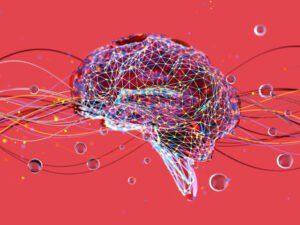![]()
Tech evangelists are regularly excited about the potential of artificial intelligence to transform our lives, and this year’s Web Summit crowd was no exception.
Here are five uses of AI showcased at one of the world’s biggest tech conferences, which returned to Lisbon last week after the 2020 edition was cancelled due to the pandemic.
Healthcare
When Iker Casillas learned of a startup that uses artificial intelligence to better detect irregular heart rhythms, he quickly signed up as an investor.
The Spanish football legend suffered a heart attack in 2019, bringing his career to an abrupt end.
The Madrid-based company Idoven analyzes data from home heart monitoring kits to monitor people’s heart health and, most importantly, to signal impending problems.
We are the first company in the world to do this,” Manuel MarinaBreysse, CEO of Idoven, told AFP.
Artificial intelligence is also used by a growing number of mental health startups.
Woebot, a chatbot that people can use to upload their anxieties, tailors their responses based on an informed reading of the person’s emotional state.
“If someone has problems or isn’t feeling very well, Woebot will invite them to work on it, or just relieve them,” said founder Alison Darcy, a clinical research psychologist.
Some may find it annoying to put their heart into a chatbot, but the Silicon Valley startup points to studies that suggest that sometimes people prefer to confide in a robot without judgment.
Cutting waste
Artificial intelligence is not a simple victory for the climate.
Forming a single algorithm system can use up to five times the emissions produced by a car over its lifetime, according to researchers at the University of Massachusetts.
But artificial intelligence is also improving the efficiency of a wide range of industrial processes, from manufacturing cement to cooling data centers.
It could also be used to reduce the amount of waste we send to landfills.
British startup Greyparrot uses artificial intelligence to recognize different types of waste moving along a conveyor belt, better selecting recyclable materials from plastic to glass than the machines normally used today.
Safer roads
Could artificial intelligence stop road accidents? Irish startup Provizio is developing technology that uses machine learning to analyze data from sensors attached to a car.
Over time, company founder Barry Lunn expects emergency braking systems to be able to shift up to 10 times faster than before.
Code writing
The age of artificial intelligence, which avoids the need for human assistance and writes its own code for computers, is closer than you think.
One initiative that caused a stir in Lisbon last week was Copilot, a joint project of software development platform GitHub and research lab OpenAI.
The tool can automatically complete pieces of code, understanding the intentions of the human software engineer.
But researchers at New York University suggest that computers still need us: about 40% of the time, the code still contains bugs.
Deepfakes
In recent years, there has been growing alarm for deepfake technology, where incredibly realistic likenesses of living people can be made to act as the creator wishes.
Deepfake which appears to show actor Tom Cruise has gone viral this year, prompting new questions as to whether the technology could be used for fraud or even political manipulation.
Reface, an American startup founded by Ukrainians, wants to use deepfake artificial intelligence for more fun purposes, allowing the user to swap Justin Bieber’s head, or the Mona Lisa, for his own.
But co-founder Ivan Altsybieiev envisions a future where people could poke fun at entire remakes of their favorite TV shows, playing themselves.
A “future where all content can be personalized,” he told AFP.













